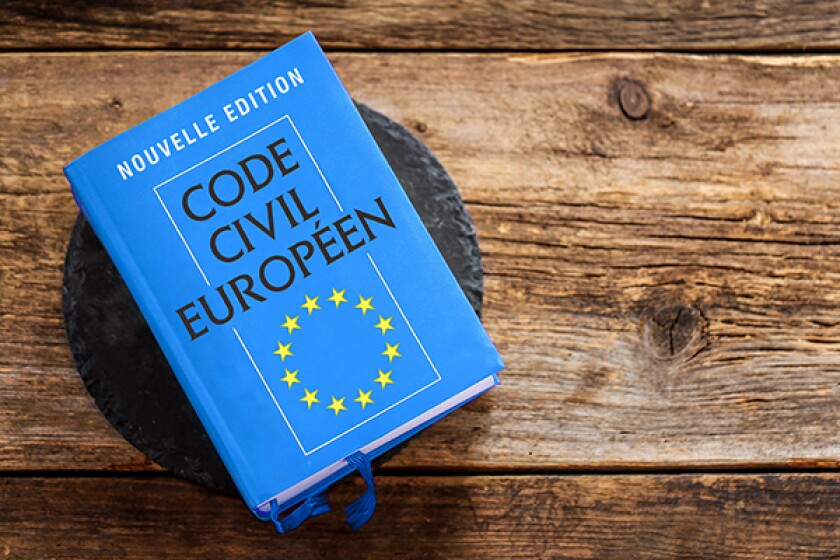Full tax harmonisation is inextricably tied to deeper EU integration, but will that still be possible given the rise of Eurosceptic political parties across Europe? Extreme left and extreme right parties have become stronger in the last EU elections and in the European Parliament and the only topic they seem to see eye to eye on is fairer taxation of multinationals.
For the European Commission, the adoption of an EU-wide Common Consolidated Corporate Tax Base system (CCCTB) remains the end game for a fair, transparent and efficient tax system. The 2011 CCCTB proposal was revamped by the commission in 2016 and updated to take on board the fight against tax avoidance, as well as tax transparency and taxing the digital economy.
So far, however, full EU tax harmonisation as proposed by the European Commission (without proposing to harmonise the rate) has proved a bridge too far for many member states, who each have vetoing power. Tax transparency has been acting as the main catalyst for proposing and adopting new EU tax legislation in the wake of the financial crisis, enabling the EU's tax policy-makers to work around the unanimity requirement for tax in the Council of the EU. As a result, companies have seen a massive increase in tax transparency requirements mandated not only at EU level but also at international and national levels. Another main driver has been the G20/ Organization for Economic Co-operation and Development (OECD) Base Erosion Profit Shifting (BEPS) project.
It is important to realise that OECD BEPS is "soft law". EU law is "hard law" and supersedes domestic law in the EU. Here is the complication: direct taxation falls within the competence of the EU's member states, but they must exercise that competence consistently with EU law. Yet EU member states fiercely tax compete with each other and with third countries. The EU therefore has had to find common, yet flexible, solutions at EU-level consistent with the OECD BEPS minimum standards and recommendations while paying specific attention to compliance with EU treaty freedoms and competences. EU directives have been the preferred vehicle for implementing BEPS in the EU to ensure both legal certainty and proportionality in the level of harmonisation required by the EU's internal market. This delicate balancing act between tax coordination and tax competition has meant that everything relating to BEPS in the EU is highly political. Besides combating base erosion and profit shifting, EU BEPS emphasises tax transparency and fair taxation of multinationals. It also encompasses harmful tax competition through preferential tax regimes, EU state aid rules, and promoting good tax governance standards within the EU and beyond.
It will therefore be important who will be elected the new European Commission president, as she or he can drive further tax harmonisation at EU level par excellence. European Commission president-elect Ursula Von der Leyen published her vision and Political Guidelines for a next Commission on July 17, after her confirmation by the European Parliament, stating:
"The EU and international corporate tax systems are in urgent need of reform. They are not fit for the realities of the modern global economy and do not capture the new business models in the digital world. I will stand for tax fairness – whether for bricks-and-mortar or digital businesses. I will ensure that taxation of big tech companies is a priority. I will work hard to ensure the proposals currently on the table are turned into law. Discussions to find an international solution are ongoing, notably at the OECD. However, if by the end of 2020 there is still no global solution for a fair digital tax, the EU should act alone. European companies ask for simple tax systems and simple rules, especially when working across borders. In the first half of my mandate, I will put forward proposals to improve the business taxation environment in the single market. A CCCTB would provide businesses with a single rulebook to compute their corporate tax base in the EU. This is a longstanding project of the European Parliament and I will fight to make it a reality. Differences in tax rules can be an obstacle to the deeper integration of the single market. It can hamper growth, particularly in the euro area where the economic ties are stronger. We need to be able to act. I will make use of the clauses in the Treaties that allow proposals on taxation to be adopted by co-decision and decided by qualified majority voting in the Council. This will make us more efficient and better able to act fast when needed. In the same spirit, I will step up the fight against tax fraud and make our action against harmful tax regimes in third countries stronger."
Von der Leyen has shown her clear ambition for progress. Full direct tax harmonisation in the EU could indeed be a bridge to the future but also could turn out to be a bridge too far for national governments – again. EU member states, who as shown earlier are calling the shots on EU tax dossiers, in practice are displaying more centrifugal tendencies these days, resorting increasingly to unilateral solutions (e.g. with regard to the digital services tax) or possibly settling for only in-part tax harmonisation (e.g. the plan for an EU financial transaction tax (FTT) under enhanced cooperation, and a Common Corporate Tax Base). These parallel EU realities will be meeting soon again here in Brussels.
PwC | EU Public Affairs-Brussels (Tax | Tax Administration Consulting)
T: +31 6 130 96 296












